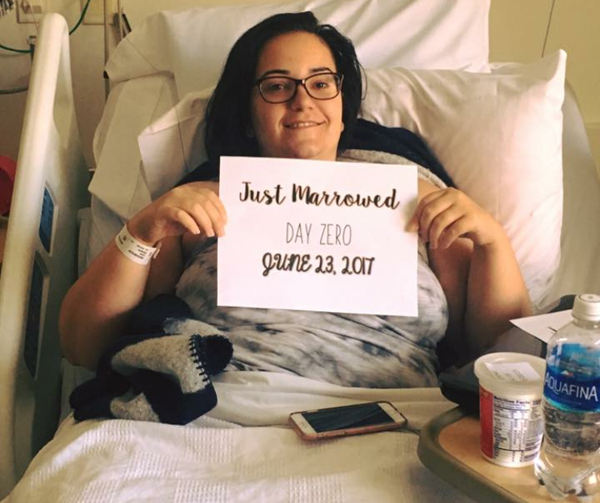
PROVIDENCE – When Kim Lyons of Warwick was diagnosed with leukemia March 1, her doctors told her the best chance for survival was stem cell therapy that would require full-body radiation treatment, likely making her infertile.
At 30, there’s a 99 percent chance Lyons would be unable to have babies on her own.
“It was heart-shattering to hear that,” Lyons said.
Fortunately, she said, her health provider, Blue Cross & Blue Shield of Rhode Island, covered 80 percent of a fertility-preservation treatment – in vitro fertilization – fertilizing a woman’s eggs with the father’s sperm in a lab environment.
Even with coverage, the treatment cost her about $5,500, she said, which required a lot of financial sacrifice and help from family.
Before Gov. Gina M. Raimondo signed into law July 5 mandated fertility-preservation coverage for people at risk of becoming sterile from medical treatment, people without the benefit of Lyons’ health care plan were forced to give up on children while trying to survive serious illness. Many didn’t have the chance to preserve their ability to have children.
“Everyone should have that chance,” Lyons said.
More than 100,000 new cancer diagnoses in the United States are in patients under the age of 45, according to Women & Infants Hospital.
Rhode Island is the first state to require fertility-preservation coverage before care that could cause infertility, a move proponents hope is the beginning of a national trend to protect the ability of people to have children at negligible cost.
“There are options currently available to preserve the fertility of these patients, but the unfortunate reality is that without insurance coverage, most patients can’t afford to see a reproductive specialist for these services,” said Dr. Eden Cardozo, reproductive endocrinologist with Women & Infants’ Fertility Center and assistant professor in the Department of Obstetrics and Gynecology at the Warren Alpert Medical School of Brown University.
Cardozo said preserving a person’s ability to have children can benefit in their recovery, boosting morale and allowing cancer survivors to look forward to a higher quality of life.
Dr. Ruben Alvero, director of the Division of Reproductive Endocrinology and Infertility at Women & Infants and the Warren Alpert Medical School, said the additional coverage can be provided to insured patients at negligible cost, about $4 per month per plan.
That coverage is unlikely to get used, Alvero said, since the problem helps a small relative percentage of the population, and not everyone faced with infertility during treatment chooses to use fertility preservation.
“Therefore, we think that the costs will be amazingly low,” Alvero said.
Rob Borkowski is a PBN contributing writer.












